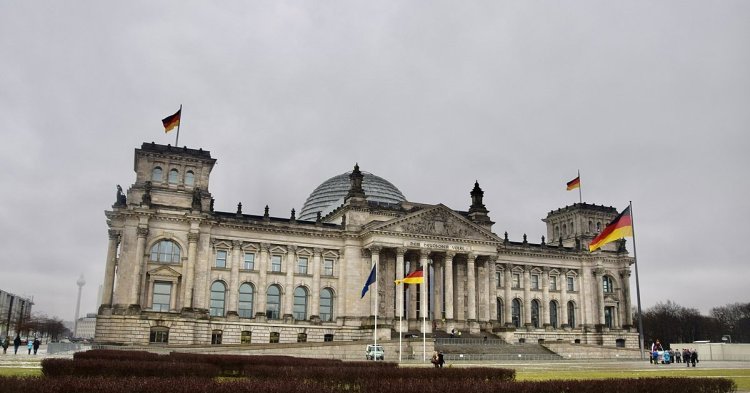In 2020, while staying in Germany during the covid-19 Pandemic, I received an interesting proposition, an invitation to speak in the German National Memorial Day (Volkstrauertag) ceremony in Berlin. This invitation, which lead to me getting to know the German war graves commission (Volksbund), their pan-European education initiative Peaceline, and the German wider war memory culture, proved transformative.
This year, I had the privilege to attend the ceremony in the audience, and I wanted to share my perspective regarding the ceremony and the memorial culture at large.
National memories, particularly with regards to deaths from national conflicts and wars, are sensitive topics. They tend to bring forth national feelings and reinforce personal but disputed narratives about history. Thus, normally, they are not conductive to peace efforts or international cooperation, and may even serve as an opportunity to embolden ultranationalists in their irredentists quests to reclaim “lost” land.
German memorial culture, owing to the catastrophe of both world wars, is unique in this respect. It transcends national borders, national memories, and even national language, and instead adopts universal values and human rights at the basis for the future. The ceremony, rather than sanctifying the goals which past victims held dear, emphasizes the futility of war as an instrument in international relations.
This was evident this year in the speeches of all involved, but most of all in the participation of people from countries which used to be adversaries. When I took part in the ceremony, representatives from Israel, the UK, and Moldova took part. This year we had representation from Sweden and Ukraine, including the Princess Victoria, the crown princess of the Swedish Monarchy.
As the grandson of holocaust survivors, it is so touching for me to look at Germany and see that reconciliation, despite untold horrors, it always a possibility. It is neither easy not simple. But Germany being in the center of the European integration project today is a proof that it is feasible and necessary.
When we are looking today at conflicts in Europe and beyond, we see that memory is often at issue. Bulgaria and the Republic of Northern Macedonia dispute their shared cultural heritage, in the Balkans, massacre are still denied, Turkey and Armenia are still at odds over the genocide committed by Turkey, and Russia is denying Ukrainian nationhood. Such one-sided approaches are not useful, they don’t allow moving forward and forging an alliance with former adversaries. They prevent the recognition of historical facts, which is often a perquisite to achieve redress and transitional justice.
German memorial culture has overcome those challenges. While still under threat by right wing populists (such as the AFD party), it has recognized, compensated, and most importantly – remembers. By remembering those lessons, it has transformed itself into a central player in today’s Europe.
So the next time you are tempted to view German success in terms of its economy, demography, or military prowess, remember that those are based first on foremost on learning and internalizing the lessons of both world wars, on aspiring and achieving peace. I would also recommend all young Europeans to engage with memorial projects, you can join international work camps of Volksbund where you get to clean and restore war graves together with other young people, you can travel to historical sites independently or with Volksbund’s flag project – Peaceline, and you can also just clean a Stolperstein (stumbling block, a memorial stone for Jewish victims of the holocaust) or attend your local memorial ceremony. Let us remember, never forget, and learn from our mistakes.


Follow the comments: |
|
